I’ve been taking a deep dive into PDA recently. I’ve known about it for a very long time, maybe 15 years, but have mostly ignored it because the name is so ugly and the things written about it by professionals have not resonated for me at all.
But since I’ve been listening to people who identify as having a PDA profile, I’m seeing more and more things I relate to. I took a PDA questionnaire written by people with PDA and I scored in the range that says I probably have PDA….but so many of the things I said “yes” to are descriptions of my trauma responses or descriptions of what it’s like for me to have both autism and ADHD.
Feeling even more confused about what PDA actually is or is not, I decided to make this series of posts where I respond to each question on the questionnaire in more detail. If you want to answer the questionnaire for yourself before reading my responses, you can find it here: PDA Test for Adults
Before I go into the questions, I want to emphasize that I am not saying PDA doesn’t exist. I’m also not saying it does exist. The traits people describe are real and people have (or should have) the right to self-identify autonomously. The label PDA seems to be helping many people understand themselves and that is something I always support.
I am not sure the PDA label is right for me, though, both because as I took the questionnaire the first time I kept feeling that the traits being described were due, in my case, to other causes. And also, I don’t want to take on a label that is so pathologizing the first word in it is “pathological”. But I wanted to be clear that it is not my intention to erase others as I explore these traits in myself.
There are 50 questions, so forgive me for my short answers. I am responding to the questionnaire in a series of five posts so I don’t have to respond to all 50 in one sitting.
Post Index (to be filled as I go:
- First ten questions (this post) (2 Yes, 7 No, 1 what is this question asking me?. The yes answers were due to: one I don’t know and one that is part because of long covid and part because of dysgraphia)
- Questions 11-20
- Questions 21-30
- Questions 31-40
- Question 41-50
- Running total of yes answers so far: 2
- Do you find it difficult to do the simple things that other people seem to find easy? (My answer: what does this question mean?)
Right off the bat, the questionnaire hits me with the kind of question I have a hard time answering. This is too vague. Do you mean tying your shoes? Figuring out if a word is a noun or an adjective? Figuring out how I’m supposed to respond to the question “how are you?” from a stranger?
This is a yes from me if I think about things like:
– working a 40 hour work week
– ignoring bullies and continuing to go where they are (including work and school)
– being on time anywhere, ever (I am time blind and have to set several phone alarms (“two hours until X” “one hour until X” “30 minutes until X” “15 minutes until X” “X” – with “X” being specific so I know what the alarm is for) or I will just accidentally blow everything off, including stuff I really wanted to do.
- Do you dislike praise? (My answer: NOPE)
Absolutely not. Sometimes I feel a little bit awkward, because I have imposter syndrome. But I adore praise and I keep the best of it in a little file to cheer myself up when I’m feeling blue. Earned praise feels wonderful.
- Do you find it harder to do tasks that you have to do as opposed to optional tasks? (My answer: NOPE)
It’s the opposite for me. I find it hard to squeeze in the things I want to do because I have such a heavy sense of responsibility about things I have promised to do. So I prioritize work for others and feel driven to show up for respite sessions or group facilitation. My own work, like working on the novel I’m writing, working on my art skills, studying Esperanto, take a back seat. Even eating and bathing have to wait in line for the times that haven’t been promised to work.
- Do you find it more difficult to complete tasks when people are watching? (My answer: NOPE)
I feel like I remember having this more as a kid than now. When I think about something like writing in public so people can watch how I write, what I edit in or edit out, and generally observe my process, I don’t feel any discomfort or stress. Maybe it’s because I’m a ham. But the same with drawing while someone watches. A YouTube person said they don’t like when people watch them put on their make-up. That never bothered me when I wore makeup (I pretty much always put it on with someone watching or at least seeing me, because I’d go to the bar and put makeup on in the dressing room before work.)
- Do you feel a need to take charge but dislike being placed in charge? (My answer: NOPE)
I only feel a need to take charge when things are chaotic and confused and no one else is actually in charge. The only thing I dislike about being placed in charge is if it’s done without asking me first and getting my consent. But if someone says, “Max, we want you to be in charge of X. Will you do that for us?” 9 times out of 10 I will say yes. I know that I’m an acceptable leader. I’m good at delegating according to people’s strengths (and asking them if they accept the task). I’m good at directing my energy toward making the thing happen and stepping out of the way instead of trying to center everything around me as some leaders try to do. I don’t particularly have any stress around leadership (with consent).
It was about this time I was starting to think this PDA concept was not a good fit. It was so far outside my own life experience, I was shocked when questions suddenly started hitting.
- Do you dislike being rushed? (My answer: oh HELL yes)
This one hits one thousand percent. I have had horrible meltdowns in the middle of someone trying to rush me into or through something. Being rushed feels miserable to me. I remember once I took off my watch to wash dishes at church and forgot it by the sink. I got home and mentioned it and suddenly everyone around me was shoving me out the door to go back and get it while I protested that the building would be locked up by now (it was). And then they wanted me to just go into our hang out time like that, still wearing my church clothes, feeling the adrenaline of being rushed. I yelled at everyone and sent them away to hang out without me because they weren’t listening to me and were saying my church clothes were just fine (I didn’t care about fashion. I just wanted to get out of my nice clothes before I ruined them by playing in them!!) and I wasn’t getting a chance to explain myself or even just sit down and take a breath. And the ritual of changing out of my good clothes and hanging them up and putting on casual clothes was an important part of transitioning to a different activity and I felt squished and pushed and ignored and talked over and mostly just super rushed by other people to do the things they wanted me to do.
So, yeah. This question stresses me out just answering it. Is this PDA? I don’t know. It doesn’t seem that pathological to me to want to change my clothes and sit down for a minute before being rushed right back out the door and then rushed into an activity I was not prepared for because I was forced to leave the house without the opportunity to get a day bag of stuff I would want to have with me while I was stuck in someone else’s car. That’s another thing I hate: I’m very picky about whose car I get in any more because when I am not the person driving I have zero control over where we go and what we do and I end up getting stuck someplace with no way to get back home. I have hitchhiked home because I was stuck and didn’t want to be there and no one else cared.
This doesn’t feel like a pathological avoidance of demands to me. This feels like me not wanting to be forced to be super uncomfortable for no good reason. I will be uncomfortable if it helps someone else. But I hate being forced to be uncomfortable because what I need is being perceived as an unnecessary burden that is interrupting their party time. Does that make *ME* the pathological one??
- Do you feel unsure of how you will react in a situation, despite past experience? (My answer: no)
I don’t think so. I often tell people I don’t know how I will respond, but that is only with respect to situations I haven’t been in before so I really don’t know how I would respond. I tend to feel pretty solid in my knowledge of myself and my understanding of how I will approach a situation I’ve been in before. Every once in a while I do surprise myself, but I generally feel like I know myself well and know what to expect. When the way I will react is different from past experiences, it is because I have thought about that situation and planned what I would prefer to do and then I go into that situation again, waiting to see if I fallback to old patterns or find the courage to try to new reaction. That’s about as “unsure” as it gets for me.
- Do you feel like others are always wrong, even though you know logically that isn’t true? (My answer: nope)
Nope. Others are not always wrong. On most topics, others are mostly right. When I logically believe someone is wrong, I also feel that they are wrong. When I logically know people are not wrong, I don’t feel like they are wrong: not then and especially not always. I can’t remember ever feeling this way.
- Do you dislike imposed routine? (My answer: only if I actually don’t like the thing being imposed on me, so no.)
I’m going to assume that “imposed” means someone else is forcing it on me? I hate when things I don’t want are done to me without asking me first to get my consent. For example, I went to a school that made my class schedule for me. I complained because they took me out of Spanish class and put me in French class for whatever reason. But I had been studying Spanish in school for at least five years by that point and I did not want to stop studying Spanish! I complained and asked, moving my way up the power hierarchy, until I found someone willing to switch me back to Spanish.
I didn’t get control over any of the other classes chosen for me and I didn’t care. I only get upset about routine being forced on me when it’s something I don’t like. I didn’t care one way or the other about the other classes. They were all okay enough. I only got upset and dug my heels in when they made a choice for me that I distinctly didn’t want. I actually thrive with routine, so if I’m not getting enough structure imposed on me from outside myself, I start creating routines myself, in order to ground me in space time.
The only routines I don’t like imposed on me fit under other categories: Routines that are too tightly planned and make me rush from one thing to the next. Routines that are built around more than I have to give: like the 40 hour work week that will grind me into nothing very fast. Routines built around things that take a lot more from me than they give back yet I was never asked if I would accept that responsibility.
- Do you/have you ever struggled in work/school due to the amount of work required of you? (My answer: yes)
Absolutely yes, but not (that I’m aware of) because of PDA. I do not have enough physical bodily energy to work a 40 hour week ever since getting COVID on February 15, 2020. I literally, physically do not have the energy. I can actually *do* 40 hours worth of work in many areas (writing, for example), but I cannot work for 40 hours out of the 168 hours in a week. I just get a lot of work done in shorter bursts of time, and it evens out somewhere along the line.
As for school, again the answer is yes but not because of PDA. I have dysgraphia and any situation where I was required to write a lot by hand was impossible. I got shouted at in the Navy over not being able to do ten pages of handwriting a day. I got in trouble with every teacher ever because I barely did any homework or schoolwork because I wasn’t allowed to type (and we didn’t start using computers until I was 15 and even then, only in computer class and I still wasn’t allowed to type my homework because “handwriting is an important skill you will need for your entire life!”)
So there are the first ten questions. Future posts will address the rest of the questions. I may do a sixth wrap-up post summarizing what I’ve learned from this series. I also would be happy to add a list of useful resources in the sixth post if people feel like sharing them with me as I go through this experiment/experience.
Thank you and stay tuned!
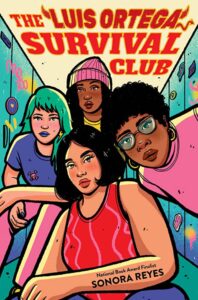
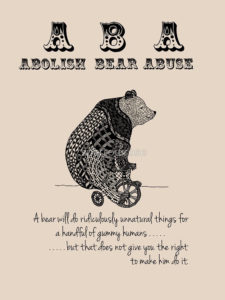
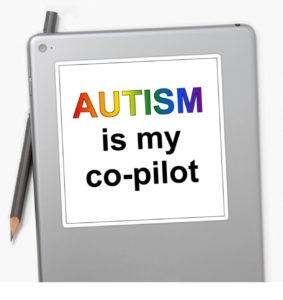
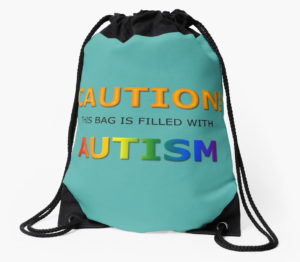
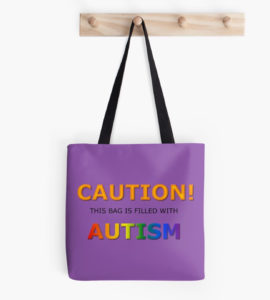
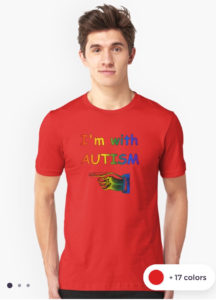
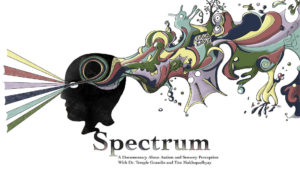

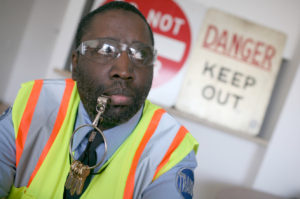
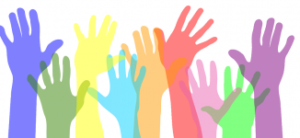

Recent Comments